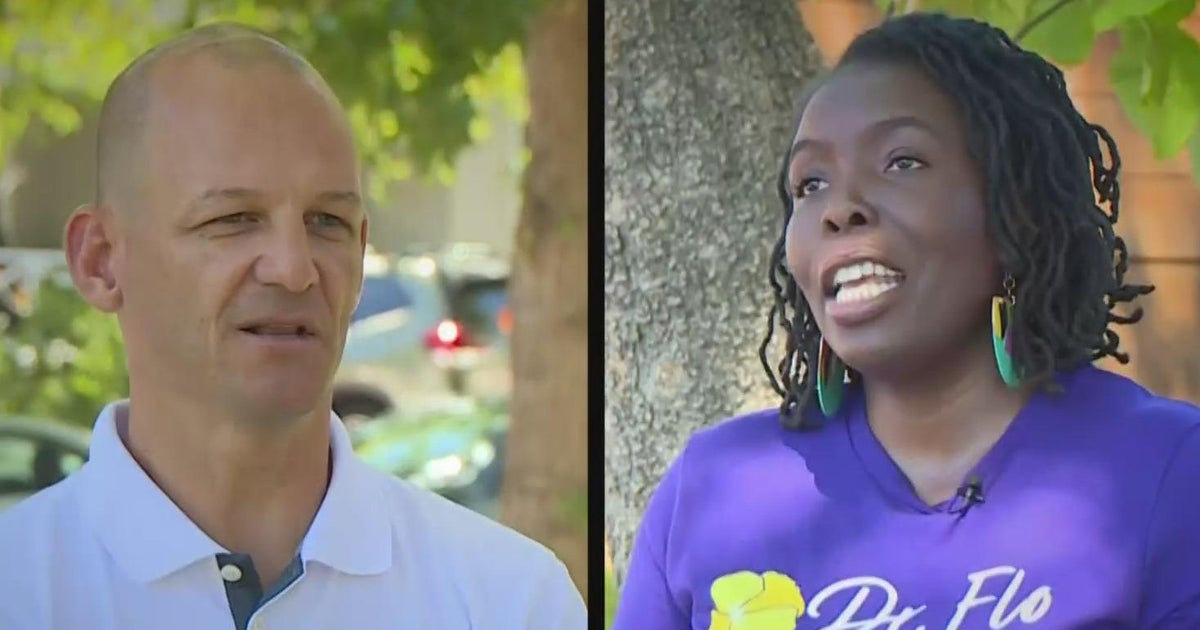How an obscure law about government secrets known as CIPA could shape the Trump documents trial
Washington — In the months before former President Donald Trump's trial in the classified documents case, his lawyers and special counsel Jack Smith's team will clash behind closed doors over what government secrets can be made public.
Trump, who has pleaded not guilty, is charged with 32 counts of willful retention of national defense information, a violation of the Espionage Act. The charges are based on documents that the government says contain classified information ranging from top secret to secret, the two highest classification levels for national security information, according to a superseding indictment filed last month.
Trump's lawyers indicated they will fight to disclose as much classified evidence as possible, saying in a July filing that the former president believes "there should simply be no 'secret' evidence, nor any facts concealed from public view."
The back-and-forth between Trump and the government about what secret evidence can be used during the trial is regulated by a little-known law known as the Classified Information Procedures Act, or CIPA.
What is the Classified Information Procedures Act?
Congress enacted CIPA in 1980 to limit the practice of "graymail," in which defendants threatened to disclose classified information at trial in an effort to get prosecutors to drop charges rather than risk the disclosure of government secrets. The bill was introduced by then-Sen. Joe Biden, who sat on the Senate Judiciary Committee.
The statute governs the litigation process between the government and defendant to determine how and if classified information can be used in criminal trials without being "unnecessarily" disclosed. It lays out a number of steps to help the government and defense narrow the classified information that will be used in court.
"CIPA doesn't actually change the substantive law," David Aaron, a former federal prosecutor who has litigated cases involving the Espionage Act, told CBS News. "It creates a procedural framework for judges to apply the substantive law basically on a different schedule, gives the government the opportunity to appeal and makes some processes mandatory."
The law is supposed to balance the defendant's constitutional right to a fair trial with the government's interest in protecting its secrets, such as intelligence sources and methods. Under the Sixth Amendment, defendants typically have a right to know the evidence the government has against them, and they gain access to it through a process known as discovery. That can quickly become complicated when the case involves classified information.
Aaron said that CIPA is meant to resolve questions about classified material "fairly quickly and in advance to avoid surprise, which gives the government the opportunity to modify its approach, dismiss a count or the case, or seek other remedies so it's not being put on the spot in the middle of a trial."
The process laid out by CIPA is already underway in Trump's case. Last month, U.S. District Judge Aileen Cannon, who is overseeing the case, set a variety of deadlines for proceedings pursuant to the law. Federal prosecutors have already submitted a request for a protective order pertaining to classified information, as allowed under the law, and Trump's lawyers filed their response to the Justice Department's motion on Wednesday.
Weighing the risks of classified information becoming public
Before a defendant is charged in a case involving classified materials, there are conversations within the government about the risks of that information becoming public at trial and whether to move forward with the case, experts said.
In the Trump case, the government found roughly 340 documents with classified markings at Mar-a-Lago after Trump left office in January 2021, according to the indictment. Trump was ultimately charged with keeping 32 of those documents illegally, an indication that the special counsel weighed the possibility of other sensitive information becoming public when deciding which charges to bring.
"You have to assume the government was selective when it decided what to charge," Barry Pollack, a criminal defense attorney, told CBS News. "If there was something the government absolutely did not want to become part of the public domain, it probably didn't charge a count related to that document."
Sid Kamaraju, a former federal prosecutor who prosecuted the case against a former CIA software engineer for the largest theft of classified material in the agency's history, said there's usually an ongoing discussion between the Justice Department and intelligence community about what the spy agencies are comfortable disclosing. Though it's unlikely the Justice Department would bring charges without the intelligence community's sign-off, there can still be friction, he said.
"There certainly can be, and has been in cases in the past, tension between the intelligence community, who has a mission to not only gather intelligence but to do so in a way that's most effective, and that usually requires secrecy, and the Department of Justice, which has to operate mostly in an open courtroom for the public to see," Kamaraju told CBS News.
How long does the process take?
The process of determining what classified information can be used at trial can take months, depending on the volume and type of the material and the complexity of the case.
Defense attorneys must undergo background checks to get security clearances — if they don't already have them — to view the classified information related to the case. Trump's lawyers, Todd Blanche and Chris Kise, told the court in July they completed the steps needed to obtain their clearances.
The prosecution then allows the defense team to see the classified information through the pre-trial discovery process. In Trump's case, the government said the defense can view the Mar-a-Lago documents and witness statements containing classified information in a sensitive compartmented information facility, or SCIF, at the federal courthouse in Miami.
But the law also gives the government an opportunity to limit the classified materials it turns over to the defense during the discovery process. Federal prosecutors can argue to the judge that certain information is not "relevant and helpful" to the defense and therefore shouldn't be shared. Prosecutors can ask to delete specific classified information from documents, substitute a summary of the information in a classified document or craft a statement with the relevant facts the classified information would intend to prove.
"If the government wants to withhold information from the defense because it's too sensitive, it has to argue that information is not relevant and helpful to the defense," Aaron said.
It's unclear whether the special counsel team will seek to limit the sensitive materials it provides Trump's attorneys. If it chooses to disclose all the information, "the government is stepping on the gas here," Aaron said.
The special counsel has until Oct. 10 to file a motion to limit discovery. Cannon set a hearing on the request for Oct. 17 if one is needed.
Prosecutors said in a July filing that its first tranche of classified discovery material will include "all documents" bearing classification markings "to which counsel's interim clearances will permit them access." They said this group of documents "represents the large majority of the classified records from Mar-a-Lago."
Then the defense team must tell prosecutors what classified information it wants to use as evidence at trial, which the prosecution can challenge. The judge would then make a decision about what classified evidence can be admitted.
"The benefit of CIPA here is that these decisions get made before trial starts," said Aaron, who prosecuted the Espionage Act case against Reality Winner, a National Security Agency contractor who pleaded guilty to mailing a classified report to a news outlet. "The whole idea is to avoid surprise at trial."
But Pollack, the criminal defense attorney, said the law's requirement that the defense notify the government and the court of the classified information it intends to disclose to jurors during the trial presents challenges, since it effectively requires the defense team to reveal its strategy ahead of time.
"The defense has the right not to have to air its defense in advance and in a CIPA case, what happens is the defense largely loses the one and only advantage it typically has to combat all of those imbalances of power between the defense and the government," he said. "It does tip the scale further in the government's direction."
Can a judge require the government to disclose classified information?
The government has several options if the judge decides that revealing classified information during a trial is necessary for a defendant to argue their case. The government can declassify it or make the argument that disclosing the entirety of the document to the public could compromise sensitive sources and methods, and thus ask for a smaller portion or a summary of the information to be revealed.
"There can be some negotiation around that," Seth DuCharme, a former federal prosecutor, told CBS News. "But ultimately, if the court determines that some or all of the classified information that the defense has identified [is] material to the defense, the court can tell the government, 'Look, it's classified. You can declassify it. You can do whatever you want. I'm just telling you, if they can't use it, in my opinion, they're not getting a fair trial. And I have very few remedies here. I can't compel you to declassify it. The only thing I can really do is dismiss your indictment because, in my view, you're not complying with your discovery obligations.'"
Short of dismissing the indictment, the judge could tell the prosecution to narrow its allegations, which would allow the government to avoid broader discovery obligations, DuCharme said. Both he and Kamaraju said they never had a case where the government dropped charges instead of disclosing classified information.
CIPA also allows the Justice Department to immediately appeal a judge's decision on disclosing classified information, while defendants can only appeal if they're convicted.
"In cases involving these kinds of charges it's quite normal for there to be a lot of litigation over the disclosure of classified information and that often does result in the government having to turn over something," Kamaraju said.
Pollack said CIPA's substitution or summary process allows the court to satisfy competing concerns of allowing the defense to use part of a document that is "legitimately necessary," while protecting from public disclosure information that could damage national security.
"CIPA is a good-faith effort to find a middle ground, but it has the collateral impossible unintended consequence of disrupting that very delicate, balanced scale between the government and the defense in how they are able to litigate a criminal case and forces the defense to show its cards to the other side before you get to trial," he said. "The government has every advantage it always has, but the defense is largely disarmed."




